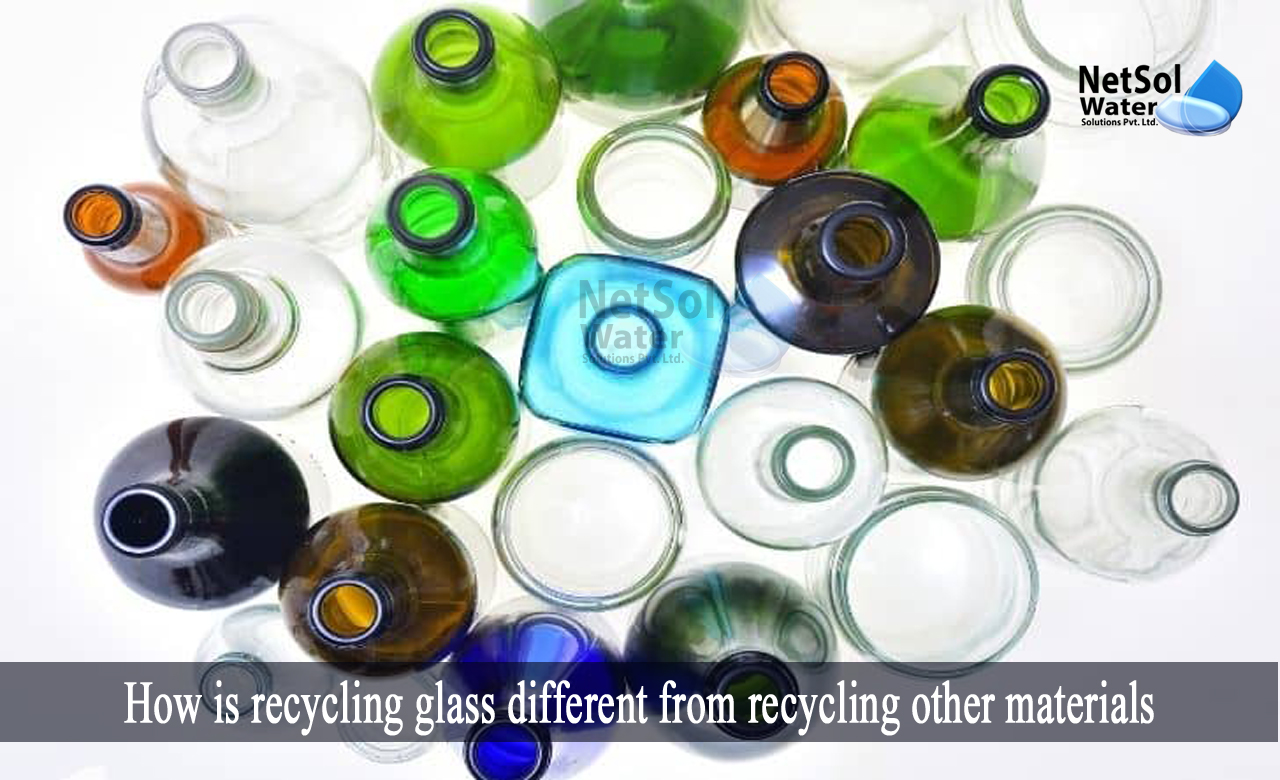Introduction
The primary function of glass as a container for beverages, food, cosmetics, and other things, can be fulfilled by a number of substitutes. Aluminium, paper, and plastic are the leading candidates.
Here, in this blog we will discuss about the differences in the recycling of glass and other materials.
How is recycling glass different from recycling other materials?
· Recycling Glass vs. Recycling Plastic
Most notably, soft drinks and water are now provided in plastic instead of the previously common glass container. However, the two materials cannot even be compared, when viewed from the perspective of recycling.
1: Plastic can only be recycled two to three times before it starts to degrade. Unlike glass, where a bottle can convert into a new bottle, recycled plastics frequently degrade and produce new items.
2: There is less financial incentive to recycling plastic because, doing so costs more than making virgin plastic. A program for recycling glass conservesmore resources, cash, and energy.
· Recycling Glass vs. Recycling Aluminium
Aluminium is widely used to replace glass in the packaging of soft drinks, just like plastic. It is also widely used as a food container, particularly for preserved items that were previously canned. Aluminium is far more recyclable than plastic, thus it does provide a more practical alternative to glass.
Like glass, aluminium is endlessly recyclable without sacrificing quality.Compared to the production of new aluminium, recycled aluminium delivers energy savings of roughly 95%.
Glass, for example, can be made from recycled aluminium. It is less expensive and has a smaller environmental impact when it is shipped, because of its reduced weight.
· Recycling Glass vs. Recycling Paper
Paper is being used to package some products, like deodorant and cosmetics that were previously packaged in glass, despite the fact that it may not seem like a practical substitute for glass. Additionally, several food firms are considering paper as an alternative, up to and including replacing plastic bottles.
It is for only about 4–6 times that paper can’t be recycled, before fibre shortening renders it useless.Recycled paper is frequently exclusively utilized for "lower quality" products, like tissue paper and egg cartons because of the degradation.When compared to new paper, recycled paper consumes 60% less energy.
Paper is frequently used as a substitute for glass, even though recycling paper doesn't truly compare to the advantages of glass, due to its capacity to decompose rather than be recycled.
Conclusion
However, glass may be processed indefinitely without losing quality, and the by-products of production are typically 100% recyclable in the same stream.
How can we assist?
In order to recycle solid waste including glass, paper, plastics, etc., Netsol Water, a global provider of solutions for problems relating to water, wastewater, and solid waste, manufactures a variety of solid waste recyclers.
Utilizing such technologies reduces the likelihood of producing any solid waste. It will eventually establish long-lasting practices for handling such waste, and provide a helping hand in achieving sustainability.
Netsol Water is Greater Noida-based leading water & wastewater treatment plant manufacturer. We are industry's most demanding company based on client review and work quality. We are known as best commercial RO plant manufacturers, industrial RO plant manufacturer, sewage treatment plant manufacturer, Water Softener Plant Manufacturers and effluent treatment plant manufacturers. Apart from this 24x7 customer support is our USP. Call on +91-9650608473, or write us at enquiry@netsolwater.com for any support, inquiry or product-purchase related query.



